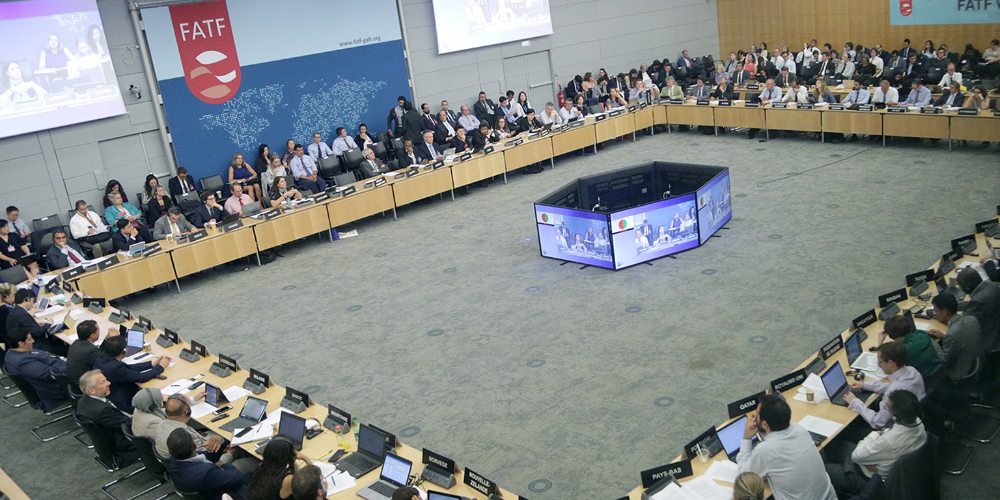South Africa Proposes 30 Rules to Regulate Cryptocurrency | Regulation Bitcoin News
(news.bitcoin.com)
South Africa’s top financial regulators, including the South African Reserve Bank, have jointly released a policy paper with 30 recommendations for the regulation of cryptocurrency and related service providers. They aim to be in compliance with the cryptocurrency standards set by the Financial Action Task Force (FATF).
A number of top South African financial regulators published on Thursday a position paper to establish a regulatory framework for cryptocurrency. It contains 30 recommendations that are in compliance with the standards set by the Financial Action Task Force, the global money laundering and terrorist financing watchdog.
The position paper is a joint initiative by the South African Intergovernmental Fintech Working Group (IFWG) and the Intergovernmental Crypto Assets Regulatory Working Group.
The former includes the Financial Intelligence Centre, the Financial Sector Conduct Authority (FSCA), the National Credit Regulator, the National Treasury, the South African Revenue Service (SARS) and the South African Reserve Bank (SARB). The group explained:

A number of South African regulators have jointly published a set of recommendations to establish a regulatory framework for cryptocurrency in compliance with the standards set by the FATF.
The position paper published by the IFWG outlines 30 recommendations for the regulation of cryptocurrency and initial coin offerings (ICOs). Stakeholders and the public are invited to submit comments by May 15.
The first recommendation ensures compliance with the rules set by the FATF as described in the guidance for crypto assets and crypto asset service providers (CASPs) that the money laundering watchdog published in June last year.
The FATF has since been actively enforcing its standards on member countries. CASPs include crypto trading platforms, ATMs, token issuers, funds and derivatives service providers, custodial wallets, and other custodial services. The policy paper adds:

South Africa’s financial regulators, including the central bank, have recommended in their policy paper that the crypto regulation adopted be in compliance with the standards set by the FATF, including the infamous “travel rule.
”The Financial Intelligence Centre (FIC) will be the supervisory authority of crypto service providers. All CASPs will be required to register with it as an accountable institution and comply with AML/CFT requirements.
“This will include conducting customer identification and verification, conducting customer due diligence, keeping records, monitoring for suspicious and unusual activity on an ongoing basis, reporting to the FIC any suspicious and unusual transactions, reporting cash transactions of R25 000.00 [$1,329] and above,” the paper explains, adding:
” The policy paper further states that “The Financial Surveillance Department of the SARB should assume the supervisory and regulatory responsibility for the monitoring of illegitimate cross-border financial flows in respect of crypto asset services.
”Further, cryptocurrency activities will continue to be monitored by the Intergovernmental Crypto Assets Regulatory Working Group.
They will “remain without legal tender status and not be recognised as electronic money” and “not be allowed for the conduct of money settlements in financial market infrastructures,” the paper clarifies. All 30 recommendations can be found here.
Top Regulators Publish Crypto Regulatory Policy
A number of top South African financial regulators published on Thursday a position paper to establish a regulatory framework for cryptocurrency. It contains 30 recommendations that are in compliance with the standards set by the Financial Action Task Force, the global money laundering and terrorist financing watchdog.
The position paper is a joint initiative by the South African Intergovernmental Fintech Working Group (IFWG) and the Intergovernmental Crypto Assets Regulatory Working Group.
The former includes the Financial Intelligence Centre, the Financial Sector Conduct Authority (FSCA), the National Credit Regulator, the National Treasury, the South African Revenue Service (SARS) and the South African Reserve Bank (SARB). The group explained:
The purpose of this position paper is to provide specific recommendations for the development of a regulatory framework for crypto assets, including suggestions on the required regulatory changes to be implemented.

A number of South African regulators have jointly published a set of recommendations to establish a regulatory framework for cryptocurrency in compliance with the standards set by the FATF.
30 Recommendations in Compliance With the FATF Standards
The position paper published by the IFWG outlines 30 recommendations for the regulation of cryptocurrency and initial coin offerings (ICOs). Stakeholders and the public are invited to submit comments by May 15.
The first recommendation ensures compliance with the rules set by the FATF as described in the guidance for crypto assets and crypto asset service providers (CASPs) that the money laundering watchdog published in June last year.
The FATF has since been actively enforcing its standards on member countries. CASPs include crypto trading platforms, ATMs, token issuers, funds and derivatives service providers, custodial wallets, and other custodial services. The policy paper adds:
It is recommended that entities providing crypto asset services be regarded as CASPs, taking cognisance of the revised Recommendation 15 of the FATF recommendations on new technologies and virtual assets.

South Africa’s financial regulators, including the central bank, have recommended in their policy paper that the crypto regulation adopted be in compliance with the standards set by the FATF, including the infamous “travel rule.
”The Financial Intelligence Centre (FIC) will be the supervisory authority of crypto service providers. All CASPs will be required to register with it as an accountable institution and comply with AML/CFT requirements.
“This will include conducting customer identification and verification, conducting customer due diligence, keeping records, monitoring for suspicious and unusual activity on an ongoing basis, reporting to the FIC any suspicious and unusual transactions, reporting cash transactions of R25 000.00 [$1,329] and above,” the paper explains, adding:
CASPs will be required to implement Recommendation 16 (‘the travel rule’) of the FATF recommendations.The regulators have also proposed that the Financial Sector Conduct Authority be “the responsible authority for the licensing of ‘services related to the buying and selling of crypto assets'” and “specific conduct standards should be developed for these services.
” The policy paper further states that “The Financial Surveillance Department of the SARB should assume the supervisory and regulatory responsibility for the monitoring of illegitimate cross-border financial flows in respect of crypto asset services.
”Further, cryptocurrency activities will continue to be monitored by the Intergovernmental Crypto Assets Regulatory Working Group.
They will “remain without legal tender status and not be recognised as electronic money” and “not be allowed for the conduct of money settlements in financial market infrastructures,” the paper clarifies. All 30 recommendations can be found here.
-
- 1
Francisco Gimeno - BC Analyst The Wild West stage for crypto is starting to disappear in the horizon in many places. Now in South Africa, one of the hottest places for crypto in Africa. Regulations are needed for safety for start ups, users and investors. South Africa maybe is fighting too much, but is a good start.







